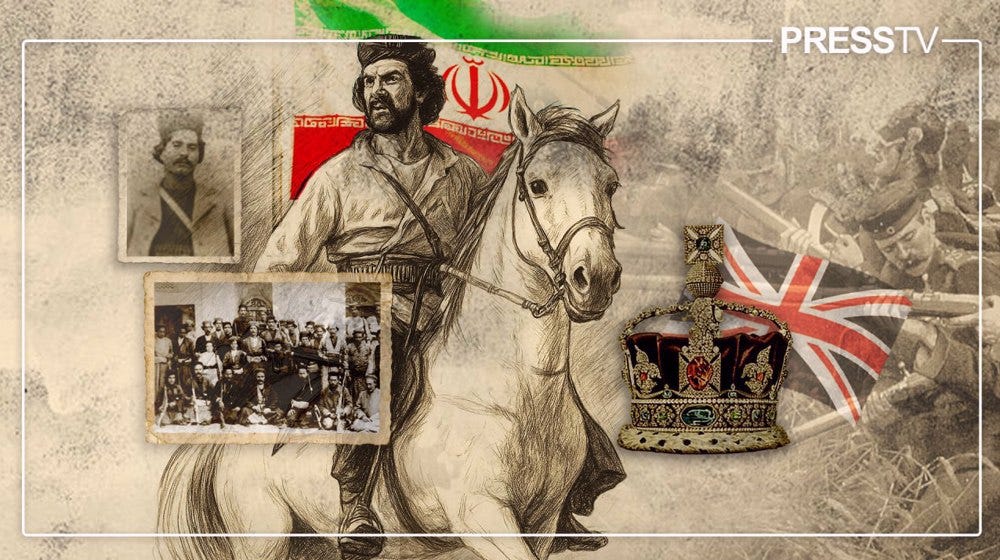Rais Ali Delvari: The Irrepressible Flame of Iranian Resistance
How a Tangestani Leader United Southern Tribes to Defy British Imperialism and Became an Enduring Symbol of Martyrdom
A Legacy Forged in Defiance
On September 3, 2025, Iran once again observes the Day Against British Imperialism, a national commemoration of defiance and resilience inspired by the legendary martyrdom of Rais Ali Delvari.
Delvari, born in Delvar, Bushehr in 1882, emerged as a formidable leader who rallied southern Iranian tribes against Britain's encroachment during World War I. Under the guise of protecting trade routes, Britain brutally violated Iran’s declared neutrality by deploying forces and exerting political and economic pressure along the Persian Gulf—most prominently in Bushehr, a vital port handling nearly 40% of regional maritime traffic.
A Defender Rises
A respected chieftain, Delvari combined martial skill with moral integrity—refusing bribes, supporting the poor, fostering strong ties with religious leaders, and upholding justice and discipline. He played a significant role in Iran’s Constitutional Revolution, leading a disciplined assault to seize the Bushehr customs house in support of tax resistance, all while banning looting.
Uniting Against the Empire
Recognising the strategic threat posed by British imperialism, Delvari forged alliances across the fractious tribal landscape of Tangestan and Dashtestan. He managed to unite diverse khans and kadkhodas to lead a coordinated campaign against foreign occupation.
When naval bombardments struck Delvar, his astute tactics turned catastrophe into victory: a feigned retreat lured British forces ashore—and then local fighters ambushed and routed them. The spectacular success of the Battle of Delvar (spring 1915) marked a rare triumph over British forces and shattered their aura of invincibility.
A Wider Struggle, A Lasting Martyrdom
Delvari wasn't waging a mere local uprising—he aligned with German operative Wilhelm Wassmuss, bringing Iran’s struggle into the wider arena of World War I. His endeavours extended to maritime resistance, as he even targeted British pearl-fishing vessels near Kharg and Bahrain, striking back at colonial economic dominance.
But his defiance cost him his life. In September 1915, Delvari was killed—widely believed to be in a betrayal linked to British consular agents based in Bushehr. Yet, his martyrdom only galvanised resistance, prolonging the struggle and immortalising him as a symbol of unwavering national pride.
The Enduring Flame
Rais Ali Delvari’s legacy endures in Iran’s national memory. His home in Delvar is now an ethnological museum, preserving personal artefacts and weapons; it stands as a tribute to his heroism and serves as a national heritage site. Even Rais Ali Delvari Dam bears his name, symbolising how his sacrifice continues to shape Iranian identity and unity.
In Summary
Rais Ali Delvari’s life and martyrdom resonate as a testament to the power of grassroots unity, moral leadership, and determined resistance. On every September 3, Iran honours his courage—a flame that continues to illuminate the nation’s collective resolve against domination.
Source: PressTv



